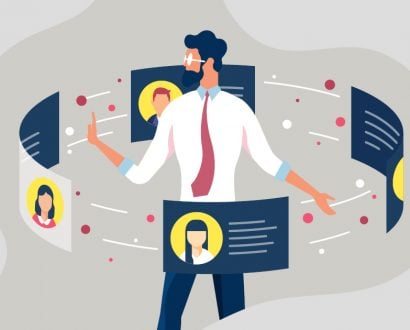Every day, news sources share stories about predictions and studies about the future. Some of these stories are positive, others negative; some will arise and others will not. It’s often a challenge to know what to pay heed to and what to ignore.
Recently, Forrester shared insights that automation will strip out approximately 1.5 million jobs from the local economy. Last year, the World Economic Forum’s ‘The Future of Jobs Report 2020’ concluded that technology-driven job creation would outpace job destruction (over the next five years); however, the economic contraction will stall job growth.
What isn’t changing?
Reading such reports can leave you with the impression that everything is changing. And yet, in many situations, change is slow. As Amazon’s Jeff Bezos noted: “I very frequently get the question, ‘What’s going to change in the next 10 years?” And that is a very interesting question; it’s a very common one. I almost never get the question, ‘What’s not going to change in the next 10 years?’ And I submit to you that that second question is actually the more important of the two – because you can build a business strategy around the things that are stable in time.”
This is not to suggest that you shouldn’t look ahead, nor think about what’s around the corner to prepare your organisation. It’s essential to be flexible, resilient and adaptable, so you and your workforce are ready for whatever comes next, even when that future is unpredictable.
Build a learning culture
The skills and competencies employees require now and into the future continue to evolve.
The World Economic Forum shared its perspective on the critical skills needed in a post-COVID-19 world. There are four:
- Futures literacy – enables people to better imagine and make sense of the future.
- Systems thinking – having the mindset to think, communicate and learn about the connected systems in which you live and work. Applying a systems-thinking approach enables you to identify patterns and then improve how you analyse problems and design the optimal strategy to address them.
- Anticipation – how you learn to recognise possible futures and use this developed consciousness to shape the decisions and actions you take today.
- Strategic foresight (and future studies) – to broaden your exploration of alternative futures and better investigate the worldview that underlies possible, plausible, probable and preferred futures.
Underpinning all these future skills are emotional intelligence, cognitive flexibility, problem-solving and critical reasoning. For these skills to flourish, they need an organisational culture where employees can challenge, explore, suspend judgement, and are supported to examine problems in different ways.
Create space for thinking
While there is specific learning that underpins all new skills, one common element is that they all require space and thinking time.
Employees need dedicated space to think, ponder, reflect and analyse, so ideas can arise. Finding that time doesn’t happen by accident. It takes deliberate planning and conscious thought. It’s recognising the value that stems from what on the outside can appear like ‘doing nothing’.
Identify the gaps
Across the workforce, identify strengths and gaps for the required future capabilities and how those elements will either hinder or enable the organisation’s progress.
Once you’ve identified those gaps, you are ready to develop the capability program to close those gaps. The work program may include short courses, online discussion forums, leadership programs and other development activities.
As part of this process, create opportunities for your team members to practise and embed their learning. For example, through on-the-job practice, volunteering, online demonstrations, or practising with a colleague.
Encourage accountability
Organisations play a crucial role in supporting their team members to identify their skill gaps, acquire new skills and then internalise those latest capabilities, which benefit them and their colleagues and organisation.
However, being fit for the future of work isn’t just the responsibility of the organisation. Employees and leaders need to be ready and willing to adapt, dig deeper into their understanding and take accountability for their learning and development.
Self-care matters
As the past 12 months have demonstrated, the world is unpredictable, and knowing how to navigate the curve balls and thrive through the uncertainty is essential.
Put in place systems and practices to encourage leaders to be alert to the warning signs of stress and burnout. For example, are team members feeling ineffective and more negative? Do they have reduced energy and motivation? Has productivity dropped and yet working hours have increased?
Leaders can also role model healthy behaviours and encourage their team members to practice self-care. All of which is much easier to do when the team is working in a psychologically healthy environment.
Michelle Gibbings is a workplace expert and the author of three books including her latest, Bad Boss: What to Do if You Work for One, Manage One or Are One.
Read next: The real hidden dangers of workplace loyalty







